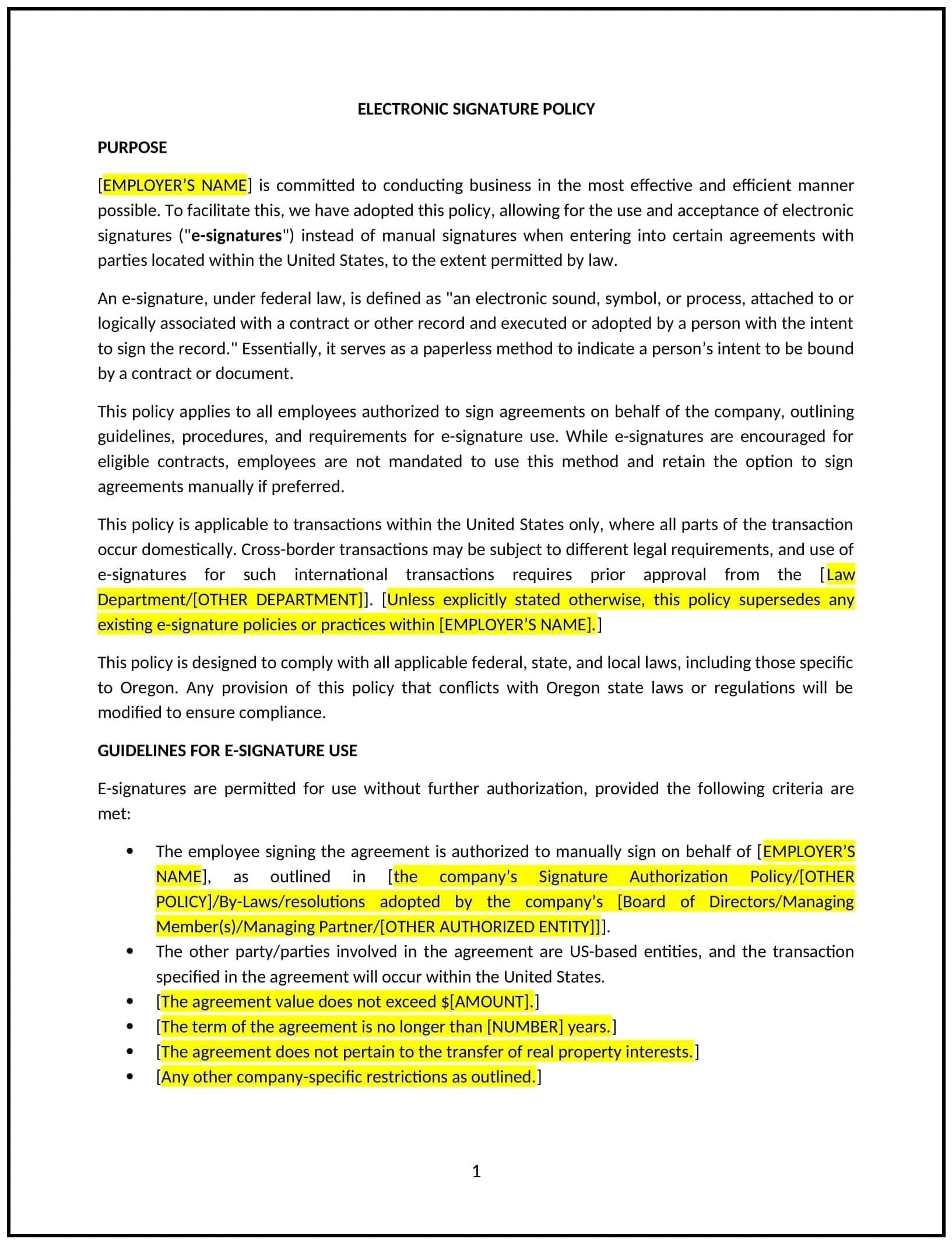Electronic signature policy (Oregon): Free template
Got contracts to review? While you're here for policies, let Cobrief make contract review effortless—start your free review now.

Customize this template for free
Electronic signature policy (Oregon)
This electronic signature policy is designed to help Oregon businesses establish guidelines for using electronic signatures in contracts, agreements, and other documents. It outlines procedures for ensuring the validity, security, and enforceability of electronic signatures under Oregon and federal laws.
By adopting this policy, businesses can streamline document processes, reduce paperwork, and align with legal standards for electronic signatures.
How to use this electronic signature policy (Oregon)
- Define electronic signatures: Explain what constitutes an electronic signature, such as a typed name, digital signature, or biometric verification.
- Establish usage guidelines: Specify when and how electronic signatures can be used, such as for contracts, approvals, or internal documents.
- Ensure security: Outline measures to protect electronic signatures, such as encryption and authentication protocols.
- Address legal compliance: Provide steps to ensure electronic signatures comply with Oregon’s Uniform Electronic Transactions Act (UETA) and the federal ESIGN Act.
- Train employees: Educate staff on the policy and their responsibilities for using electronic signatures.
- Monitor compliance: Regularly review electronic signature practices to ensure adherence to the policy.
- Update regularly: Assess the policy annually to align with evolving business needs and legal standards.
Benefits of using this electronic signature policy (Oregon)
This policy offers several advantages for Oregon businesses:
- Streamlines processes: Reduces paperwork and speeds up document signing and approvals.
- Enhances efficiency: Allows employees to sign documents remotely, improving workflow flexibility.
- Aligns with legal standards: Ensures electronic signatures comply with Oregon and federal laws.
- Reduces costs: Minimizes expenses related to printing, mailing, and storing physical documents.
- Improves security: Protects electronic signatures through encryption and authentication measures.
Tips for using this electronic signature policy (Oregon)
- Communicate the policy: Share the policy with employees and include it in the employee handbook.
- Provide training: Educate staff on the proper use of electronic signatures and the policy’s guidelines.
- Use secure platforms: Implement trusted electronic signature software to ensure security and compliance.
- Monitor compliance: Regularly review electronic signature practices to ensure adherence to the policy.
- Update regularly: Assess the policy annually to align with evolving business needs and legal standards.